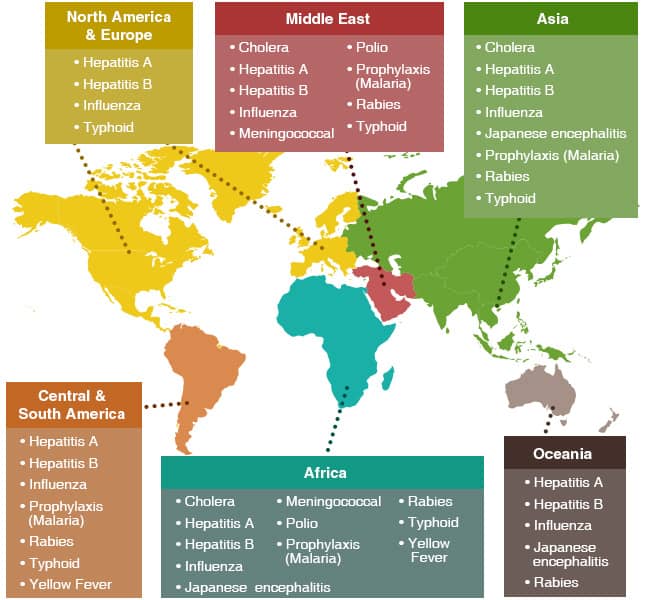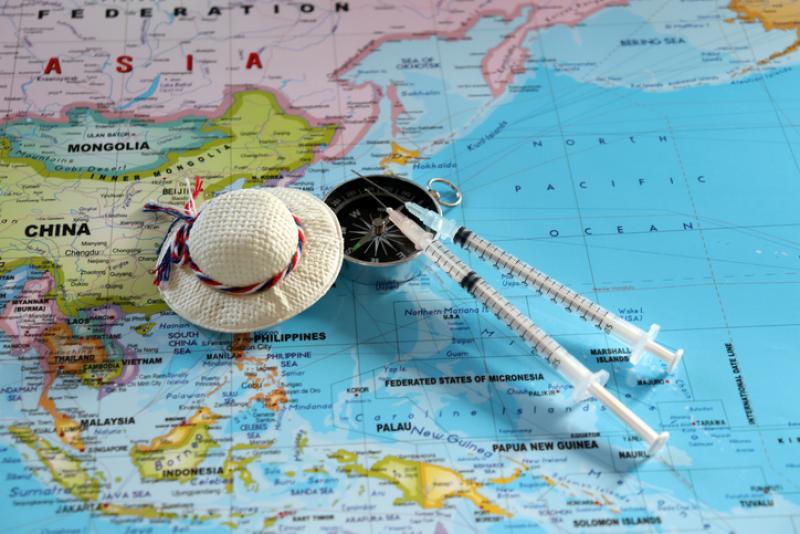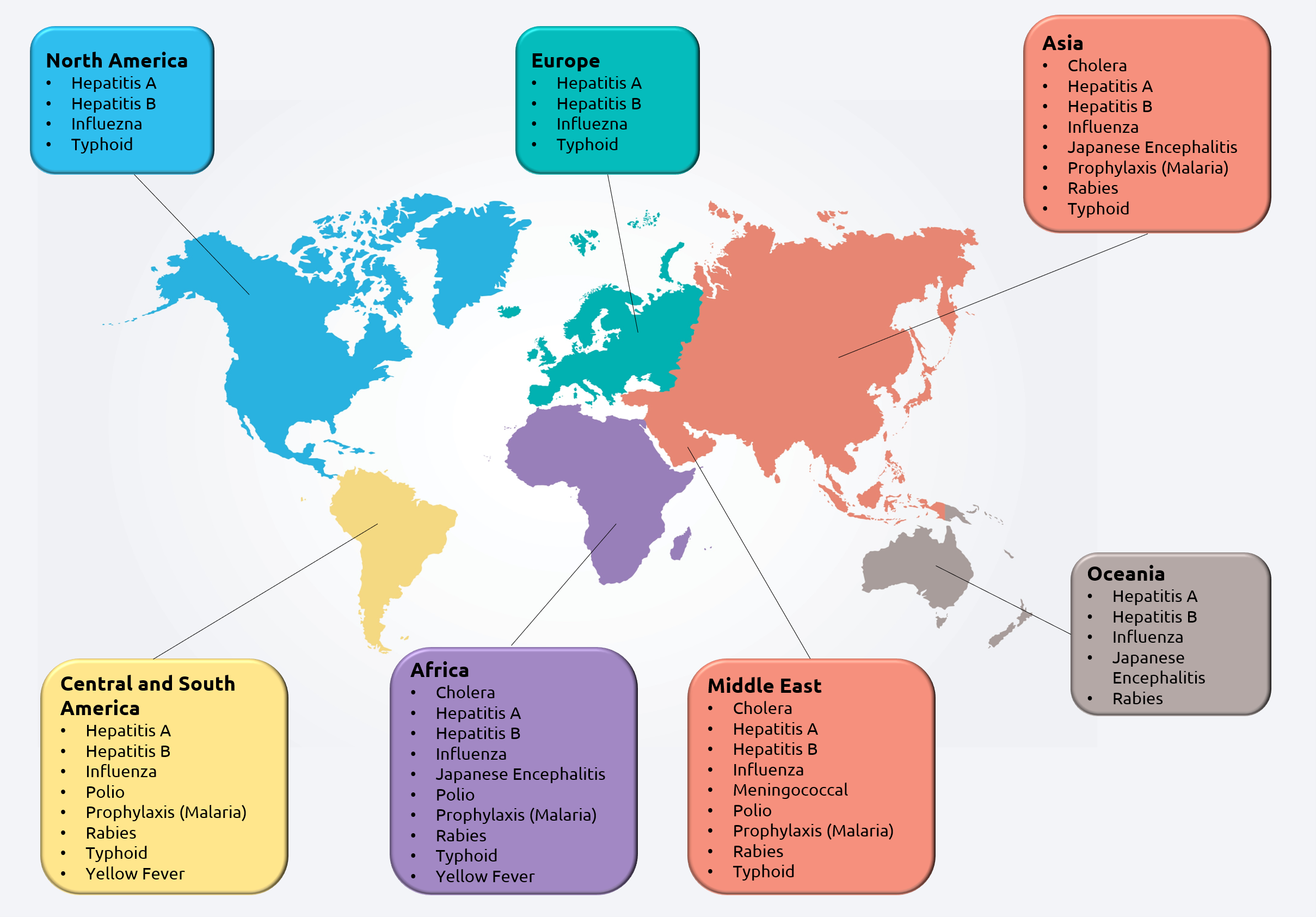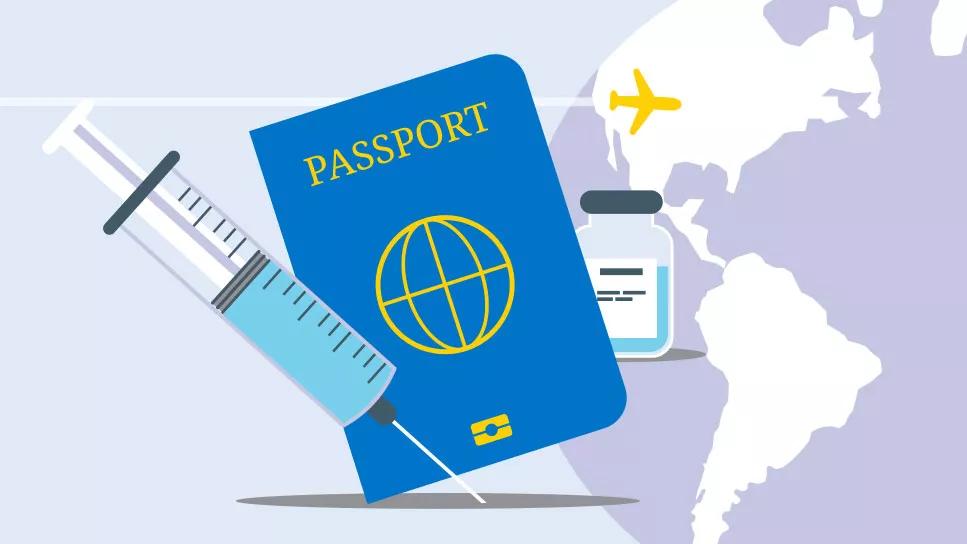The Complete Guide to Travel Vaccinations: Stay Safe While Traveling
Traveling internationally can be an exciting and enriching experience, but it also comes with potential health risks. One of the most important preparations you can make for your trip is to ensure that you’re up-to-date on essential travel vaccinations. Whether you’re heading to a tropical destination or an urban city, certain vaccinations can help protect you from diseases that may not be prevalent in your home country. In this guide, we’ll explore everything you need to know about travel vaccinations, why they’re important, and how to get prepared before your next adventure.
1. Why Are Travel Vaccinations Important?
Travel vaccinations are designed to protect you from infectious diseases that you may encounter in other countries. Diseases like yellow fever, malaria, and typhoid may be common in certain regions but rare in others. By getting vaccinated before you travel, you can minimize the risk of contracting these diseases.
Vaccinations also help prevent the spread of diseases to other travelers and local populations, making you a responsible traveler. Many countries even require proof of certain vaccinations before allowing entry, so getting vaccinated is not only about your health but also about complying with local regulations.
2. Types of Vaccines You May Need
The types of vaccinations you need depend on the regions you are visiting, the time of year, and your health status. Below are some common travel vaccinations recommended for various regions:
Routine Vaccines
Before traveling, ensure that your routine vaccinations are up to date. These include:
- Measles, Mumps, Rubella (MMR)
- Tetanus, Diphtheria, Pertussis (Tdap)
- Chickenpox
- Polio
Recommended Vaccines for Specific Regions
Certain regions require or recommend additional vaccines due to local health risks. These may include:
- Hepatitis A: Recommended for travelers to regions with poor sanitation, including parts of Asia, Africa, and Latin America.
- Hepatitis B: Important for travelers who may come into contact with bodily fluids or needles.
- Typhoid: Common in areas with poor sanitation and food safety.
- Yellow Fever: A requirement for entry to some countries in Africa and South America.
Optional but Beneficial Vaccines
Depending on the nature of your travel, some optional vaccines might be useful:
- Malaria Prevention: In areas where malaria is common, you may need to take antimalarial medication.
- Rabies: For travelers spending significant time outdoors, particularly in rural areas with high exposure to animals.
- Japanese Encephalitis: Recommended for travelers visiting rural parts of Asia.

3. When to Get Vaccinated
It’s essential to start planning your travel vaccinations well in advance of your trip. Many vaccines require time to take effect, and some may need multiple doses. Ideally, you should schedule an appointment with a travel clinic or your healthcare provider at least 4 to 6 weeks before your trip to ensure you have adequate time for vaccination.
Some vaccines, like the yellow fever vaccine, may require documentation of immunization for entry into certain countries. Additionally, certain vaccines may require boosters or follow-up doses, so the earlier you begin the process, the better.
4. Where to Get Travel Vaccinations
You can get travel vaccinations from several sources, including:
- Travel Clinics: These clinics specialize in travel-related health and can provide comprehensive vaccine recommendations based on your destination and health history.
- Your Primary Care Doctor: If your primary care doctor is experienced with travel health, they can administer the necessary vaccines.
- Pharmacies: Many pharmacies now offer common vaccines, such as the flu shot and hepatitis A.
- Public Health Departments: Some local health departments offer travel vaccination services, often at a lower cost.
Always ensure you get your vaccinations from a trusted healthcare provider and that they are administered well before your trip.

5. Travel Vaccination Costs and Insurance
The cost of travel vaccinations can vary depending on the vaccine and the provider. Routine vaccines may be covered by health insurance, but travel-specific vaccines often aren’t, so be sure to check with your insurance company beforehand.
Travel vaccinations can cost anywhere from $50 to $300 or more per vaccine, depending on your destination and the specific vaccines you need. In some cases, vaccines like yellow fever and Japanese encephalitis can be on the higher end of the price spectrum.
It’s also important to consider the cost of any required prescriptions, such as antimalarial medications or rabies post-exposure shots.
6. Potential Side Effects of Travel Vaccines
Like all medications, travel vaccinations can have side effects, although most side effects are mild and temporary. Common side effects include:
- Soreness at the injection site
- Fever
- Fatigue
- Headache
Severe side effects are rare but may include allergic reactions. If you experience symptoms like difficulty breathing, swelling, or a rash, seek medical attention immediately.
How to Minimize Side Effects
To minimize side effects:
- Stay hydrated after receiving the vaccine.
- Rest and take over-the-counter pain relievers, if needed.
- Apply a cold compress to the injection site to reduce swelling.

7. Travel Vaccination Myths Debunked
There are several misconceptions about travel vaccinations that can discourage people from getting vaccinated. Here, we address a few common myths:
Myth 1: “Travel vaccines are only necessary for certain countries.”
Reality: Even well-traveled countries can pose health risks, and some vaccines are recommended for destinations within developed nations. Always check with a healthcare provider, regardless of where you’re going.
Myth 2: “I don’t need vaccinations if I’m just visiting for a short time.”
Reality: Some diseases, like hepatitis A, can be contracted quickly, and it’s better to be vaccinated even for short trips.
Myth 3: “Vaccines are dangerous and unnecessary.”
Reality: Vaccines are highly regulated and are one of the safest and most effective ways to prevent serious illnesses. The risk of side effects is minimal compared to the health risks posed by the diseases they prevent.
8. FAQs About Travel Vaccinations
1. Do I need a travel vaccination if I’m staying in a city?
While vaccines for diseases like yellow fever may not be required for city stays, vaccines for diseases like hepatitis A or typhoid may still be necessary depending on local conditions.
2. Are there vaccines required for certain countries?
Yes, certain countries require proof of vaccination, especially for diseases like yellow fever. Always check the entry requirements of your destination.
3. Can I get all my vaccines at once?
Most travel clinics can administer multiple vaccines during a single appointment, but if you need several doses, it’s important to space them out according to the provider’s recommendations.
4. How long before my trip should I get vaccinated?
Ideally, get vaccinated at least 4 to 6 weeks before your trip. This allows time for the vaccines to take effect and for any possible side effects to subside.
Conclusion
Getting the right travel vaccinations is a vital part of preparing for international travel. They help protect you from preventable diseases and ensure that your trip remains safe and enjoyable. By planning ahead, consulting with healthcare professionals, and staying informed, you can reduce your risk of illness while traveling.
Always consult with a travel health expert to get personalized advice on the best vaccinations for your trip. Stay healthy, stay safe, and enjoy your travels to the fullest!
For more travel health tips and essential preparations, visit our Travel Health page. Safe travels!

